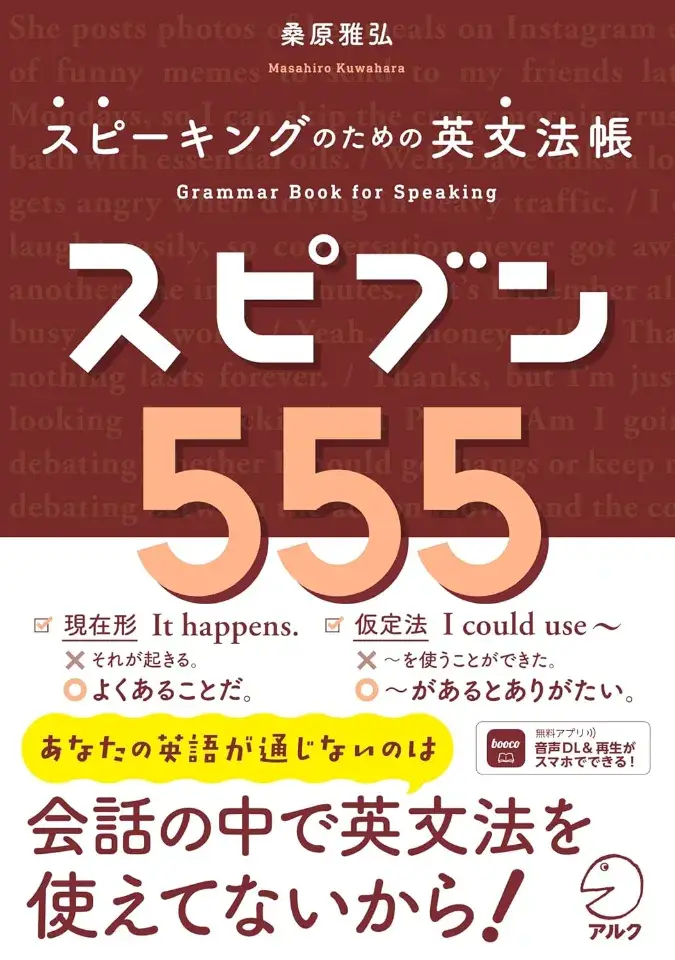
環境問題やSDGs、デンマークデザインや建築への関心の増加とともに、フォルケホイスコーレ(職業教育)留学が検討されることも多くなった昨今。デンマークで働く・学ぶメリットは何か、また、今後どのように教育や環境問題に関する活動を進めていきたいかなど、ピーター タクソ-イェンセン駐日デンマーク王国大使に伺いました。インタビュー音声の一部を掲載しているので、実際の大使の語りをぜひ聞いてみてください。
大使インタビュー第1回と第2回の記事はこちらからご覧いただけます。デンマークの基本情報や世界幸福度ランキング2位の秘密、ヒュッゲとは何か、高い英語力の秘密について紹介しています。
環境問題&SDGsの先進国、デンマーク
――日本人にとって、デンマークで働いたり学んだりすることのメリットはなんだと思いますか?
(What do you think are the advantages of working and studying in Denmark for Japanese people?)
デンマークには「ヒュッゲ(※)」の概念があるので、ライフワークバランスの取れた生活を送ることができるでしょう。私は日本人の同僚に、夜の10時などではなく、もっと早い時間に退社してもらうよう努めています。しかしデンマークの外務省では、多くの人は子供を幼稚園に預けて朝8時か9時くらいに出社したら、午後4時か4時半には退社します。夕方以降は家族と共に過ごす時間なのです。デンマークに来た人たちは、私たちが作り出したこの仕事と生活のバランスを高く評価してくれます。1つだけ自慢できないことは天候で、あまり良くない日も多く、冬は暗いです。しかし夏は夜がとても長く、明るくて非常に美しいです。
I think, first of all, where I started, we actually have something to offer in terms of our approach to life – the whole concept of “hygge” and the balance between work and life. I’m trying to get my Japanese colleagues to leave the office not at 10:00 but earlier. And in Denmark, when I go around the foreign ministry offices, people will come in at maybe 8:00 or 9:00. They have to drop off their kids at the kindergarten. And then they will leave at 4:00 or 4:30 in the afternoon. And then they have the evening and late afternoon for their families. All these things are the sort of things that when people come to Denmark, they actually really appreciate this balance between work and life that we have created. One thing I can’t brag about is the weather because it’s normally not so nice. It’s dark in the winter, but in the summer, you have very long, light evenings, which are extremely beautiful.
※ヒュッゲ hygge:デンマーク語で「勇気、慰め、喜びを与えること」を意味し、満足な感情がもたらされ、居心地がよく、快適で陽気な気分であることを表現する言葉。コリンズ英語辞典の2016年新語流行語大賞(イギリス版)第2位に選ばれた。
そしてもちろん、(日本人がデンマークに来る理由には)フォルケホイスコーレ(※)も関係していると思います。成人教育が日本では好まれていることに、私は驚いてしまいます。日本とデンマークの学校での教育の仕方の違いが関係していると思いますが、この違いこそが、フォルケホイスコーレを特徴付けているものなのです。日本の人々は、この教育における違いを体験するためにデンマークへとやって来ているのだと思います。彼らはこの違いを体験することの価値について、とてもよく分かっているのでしょう。そしてフォルケホイスコーレの概念が日本に持ち帰られ、各地の学校に導入されていることはご存じのことかと思います。
And then of course, the whole concept of folk high school. Vocational education course is something that I have been surprised to see how appealing that is to Japanese. I think it has to do with the difference between how you are teaching in school and how we’re teaching, but this is actually brought into the Folkehøjskole as well. And the Japanese students come to experience this. They are very, very appreciative of getting this experience. And as you know, it has also been brought back to Japan, where you have all these schools around the country as well.
※フォルケホイスコーレ Folkehøjskole(デンマーク語)、folk high school(英語) :19世紀のデンマークを中心に発達し、北欧全土に広がる成人教育機関。哲学や文学、心理学、芸術、技術、ジャーナリズム、スポーツなどが学べる。学習目標は民主主義の向上。日本には大正初期に伝えられ、その後の農民教育に大きな影響を与えた。

――デンマークは環境問題対策において先進国だと言えます。どんな活動を行っているのですか?
(Denmark is a leading country in terms of environmental measures. What activities do you carry out?)
気候変動はさまざまなレベルで対処する必要があります。まず始めに、気候変動は人類にとって脅威であり、それに対処しなければならないという世界的なコンセンサスを維持する必要があると思います。デンマーク政府はどうにかしようと尽力しています。次に、各国が行う活動や二国間で連携して行う活動です。デンマークは、社会の「脱炭素化」に大きく舵を切りました。1992年に世界で初めて洋上風力発電所を建設したのです。日本では昨年12月、秋田県で第1号機が運転を開始しました。私たちが行っているのは化石燃料の代わりに再生可能エネルギーを使うという社会の脱炭素化であり、この動きは日本とデンマークで同じ方向に向かっていると思います。私たちは日本政府と密に連携し、洋上風力発電の導入や原子力発電の利用などについて、さまざまな経験を共有しています。
I think that is something, that is also a big question, because that’s something we need to address at many, many different levels. I think the first level is a global level, where we need to maintain a global consensus that climate change is a threat to humanity and somebody needs to do something about it. And we’re trying to do something about it. Second thing is the individual and bilateral work that we do. And Denmark have[has] moved a lot on, can you say, the “decarbonization” of our society? We are the first country in the world to build an offshore wind farm, back in 1992. The first one was opened here in Japan in December of last year. In Akita. But what we’re doing is to basically decarbonize our society by using renewable energy instead of fossil fuels, and I think the move here is going in the same direction. So that's the next level. And we’re working closely with the Japanese government to share our experience about introducing offshore wind and using nuclear energy – all these things.
また、私たちは日本の高校でデンマークの社会について説明しています。その中で、デンマークで脱炭素化やSDGs(※)にどのように取り組んでいるのか、またその重要性についてお話しします。気候変動問題に対する日本とデンマークの取り組み方には、教育制度から見える大きな違いがあると思います。ヨーロッパでは、若者たちが企業や政治家に「私たちの未来を守るために、環境問題に取り組んでほしい」という圧力をかけています。若者たちは手を挙げてデモを行い、学校を休んででも、環境問題に対する取り組みを求めます。しかし、日本では若者たちからの圧力があまり見られません。これは、年上の人たちを敬うことや手を挙げ過ぎないようにと教育されてきたためだと思われます。したがって、なぜ環境問題に取り組むことが重要なのかを日本の若者たちが理解できるよう、私たちも努力しています。
We also explain about Danish society in Japanese high schools. We explain how we work on decarbonization and the SDGs in Denmark and the importance of this. There are significant differences between the Japanese and Danish approaches to climate change issues, which can be seen from the education system. In Europe, young people are putting pressure on businesses and politicians to tackle environmental issues to protect their future. Young people raise their hands and demonstrate and even take time off school to demand action on environmental issues. In Japan, however, we do not see much pressure from young people. This is probably because they have been educated to be respectful to their elders and not to raise their hands too often. Therefore, we try to build bridges so that young people in Japan understand why it is important to work on environmental issues.
※SDGs:持続可能な開発目標(Sustainable Development Goals)。2030年までに持続可能でより良い世界を目指す国際目標で、17のゴールと169のターゲットから構成される。

――デンマークはSDGsについても進んでいますが、それはなぜでしょうか。
(Denmark is also making good progress on the SDGs. Why is that?)
デンマークでは、多くの企業が自社の事業計画や戦略にSDGsを取り入れています。また、世界のサステナブルな企業ランキングでも、ほとんどの年において上位5社にはデンマークの企業がランクインしています。それらの企業に話を聞くと、「企業として社会に還元する必要があるので、SDGsに取り組んでいます。また、株主たちもそのような取り組みを求めているため、当然のこととして行っています」と話します。すなわち、彼らの顧客は、環境に配慮したサステナブルな製品を求めているということです。さらに、優秀な社員を獲得するためにも、SDGsに熱心に取り組んでいます。デンマークの社員や若者は「かっこいい企業で働きたい」と考えており、最近ではそのような企業としてサステナブルな企業が注目されています。私は、デンマークと日本の企業をつなぐ架け橋としての役割を果たしたいと考えています。日本の民間企業もサステナブルな方向に動き始めているようなので、さまざまなアドバイスができると思います。
In Denmark, many companies have integrated the SDGs into their business plans and strategies. And, in most years, Danish companies are among the top five most sustainable companies in the global sustainable companies ranking. When we spoke to these companies, they told us: “We are working on the SDGs for the good of society, and as a company, we need to give back to society. We also do it as a matter of course because our shareholders also want us to do so.” In other words, their customers want environmentally sustainable products. Furthermore, they are also keen on the SDGs in order to attract the best employees. Danish employees, voters and young people want to work for cool companies, and as such, sustainable companies have recently attracted a lot of attention. I want to play a role as a bridge between Danish and Japanese companies. I am aware that Japanese companies are also starting to move in a sustainable direction, so we can offer a range of advice.

――日本人向けに、どのような広報活動をされていますか?
(What kind of PR activities do you carry out to promote Denmark to the Japanese?)
毎年11月の最初の週末に、デンマーク王国大使館がある代官山で「Denmark Open Days(デンマーク オープン デイズ)」というイベントを行っています。今年は通りを封鎖して、地域の方々と一緒に盛大なお祭りにしたいと考えています。また、素晴らしいことに、北海道に住む織田憲嗣(のりつぐ)教授が世界で一番多くのデンマーク家具をコレクションしており、展覧会の開催に向けて大使館が支援しています。デンマーク家具収集の世界的第一人者が日本にいることは、とても幸運なことです。地域社会を支援すると同時に、デンマークの価値や文化を広めることにも努めています。
Every year, on the first weekend of November, we organize an event called “Denmark Open Days” in Daikanyama, where the embassy is located. This year, I’m trying to have the street closed off and have a big festival with the local community. Also, wonderfully, Professor Noritsugu Oda, who lives in Hokkaido, has the largest collection of Danish furniture in the world, and the Danish Embassy is supporting him in organizing the exhibition. We are very fortunate to have a world leader in Danish furniture collecting in Japan. In this way, we strive to support the local community and at the same time promote Danish values and culture.
――最後に、日本の読者に向けて伝えたいことはありますか?
(Finally, is there anything you would like to say to our Japanese readers?)
新型コロナウイルス感染症の水際対策もなくなり、人々が再び旅に出られるようになりました。日本の人たちは旅行をするのが大好きですから、ぜひデンマークにもいらしていただきたいです。今回お話ししたこと以外にも、デンマークを訪れる興味深い理由はたくさんあります。
The waterfront measures against COVID-19 are no longer in place and people are able to travel again. And I know Japanese people actually love traveling, so therefore we hope they will also come to Denmark because there are even more good reasons to do so than we have discussed.
デンマークに興味を持った人はこちらもチェック
取材:知夏七未 構成・文:古川(編集部) 大使写真:安宅雅美(編集部)
boocoで読める!アルクの新刊、続々登場
語学アプリ「booco」なら、アルクのベストセラー書籍200タイトル以上が、学習し放題!
「キクタン」などアルクの人気書籍800冊以上が音声対応。「読む」に対応した書籍では、本文と音声をスマホで手軽に利用できるほか、一部の書籍では、学習定着をサポートするクイズ機能で日々の復習や力試しも可能です。さらに、Plusプランに加入すれば200冊以上の書籍が学習し放題に!
boocoの「読む」機能では、次のような使い方ができます。
① 学習したいページを見ながら音声を再生できる
② 文字サイズや画面の明るさを調整できる
③ 書籍内検索ができる
※ これらの機能には一部の書籍が対応しています。

▼「booco」の無料ダウンロードはこちらから









